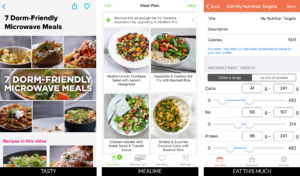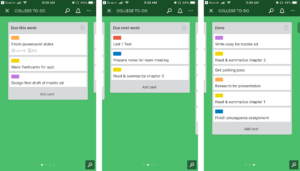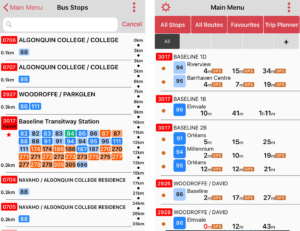
Liam Kelly started the scriptwriting program at Algonquin three months ago and hopes that the one-year program will give him the experience he needs to pursue his career.
“My dream since I was a kid was to make movies,” says Kelly.
After completing two years of post-secondary education in film and television, Kelly considered going to university, but the length of the program and the high costs were some of the reasons he ended up choosing a graduate certificate program instead.
“As valuable as a master’s degree might be for some fields, for mine, in scriptwriting, it is really the practical of having things written in hand that count.”
Faith Atwell went to university, but after graduating she realized she needed industry related experience to get the job she wants with human resources. She was excited to find out that the human resources management graduate certificate program at Algonquin would give her the practical learning in only a year.
“It is condensed, it’s very intense, but it is in one year and it allows you to graduate with that experience and hit industry right away,” says Atwell. “We learn the theory and we instantly implement it within industry. You gain more knowledge in that sense of not just knowing but doing it.”
Main differences
Graduate certificate programs at Algonquin are one to two years long, with each program having specific requirements. Some require experience, others will ask for post-secondary education. There is still theory involved in the curriculum, but the practical element is key in a graduate certificate program.
Master’s degree programs in Canada require an undergraduate or bachelor’s degree and are usually 2 years long. The cost of a master’s degree is higher, especially if you want to take an MBA. Some professions require a master’s degree and some students who take this path are aiming to get a PhD.
The Dean of Academic Development at Algonquin, Maggie Cusson, says what attracts many university graduates to Algonquin College is the work-integrated learning component of the graduate certificate programs.
“For some programs it is projects or applied research, but in most cases what it means is the co-op, it is a field placement, it is a clinical placement, which means that the student is already working with an employer as part of their study.”
Cusson also says that the practice element gives students more job opportunities.
“It is those skills that are needed by an employer, plus the experience, that actually make them that much more employment ready.”




















